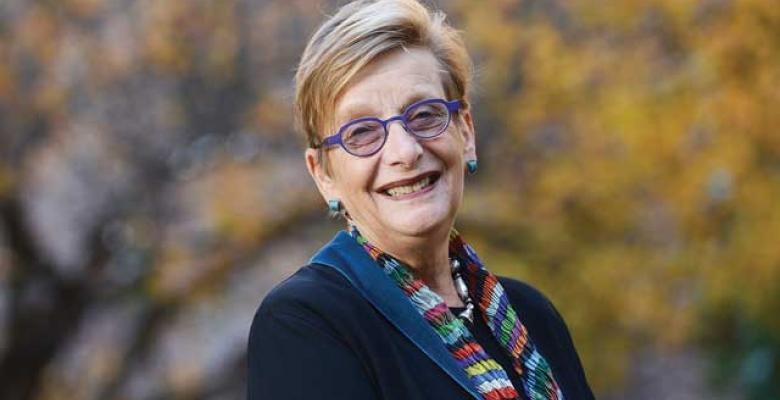As Modern Language Association President Marianne Hirsch Advocates for the Humanities
Marianne Hirsch began her presidency of the Modern Language Assocation last January, just months before the release of a report to Congress by the American Academy of Arts and Sciences defending the value of a liberal arts education at a time of reduced humanities funding and waning student enrollments.

Hirsch, an English and comparative literature professor who heads the nearly 30,000-member organization of language and literature scholars is not daunted by the challenges facing her profession, including the seemingly alarming statistic that just 7.6 percent of U.S. students are now majoring in the humanities.
“The humanities are as vital as ever. What is really important is to put the question of majors in one field versus another in the larger context of the cost of college education and growing student debt which is the primary challenge facing the academy today, ” she says. She also notes that the biggest drop occurred in the 1970s and ’80s, and the numbers have held relatively steady ever since.
The MLA couldn’t have found a better advocate for the enduring value of the humanities than Hirsch, whose job includes articulating the importance of literature and language study. “Our students are bombarded by media, images and texts,” she says. “The humanities teach students to be intelligent and discerning global citizens.”
Among the issues the MLA is currently tackling are the role of online learning and scholarly communications, and the growing number of adjunct instead of tenure-track professors, topics that have swirled around academia for years. In view of a shifting job market for Ph.D.s, the MLA also sponsored a Task Force on Doctoral Education, whose members include Columbia’s dean of the Graduate School of Arts and Sciences, Carlos J. Alonso.
Hirsch’s biggest undertaking, however, is a review, the first since 1974, of the MLA’s structures of knowledge, its divisions and discussion groups. This may sound bureaucratic but it affects everything from the convention to job listings and the structure of academic departments. For instance, foreign languages such as Chinese and Arabic are gaining importance and need more space in the MLA, as does the teaching of writing. Editing, translation, libraries, and bibliographic work are all important facets of the MLA, yet aren’t always acknowledged as such.
Other changes being proposed include more inclusive academic rubrics such as “Atlantic Studies” and “Mediterranean Studies,” as well as “Digital Humanities” and “Medical Humanities.”
Hirsch joined Columbia in 2004 after three decades teaching French and Comparative Literature at Dartmouth College, where she helped launch the women’s studies program. At Columbia, she is the William Peterfield Trent Professor of English and Comparative Literature, as well as a professor at the Institute for Research on Women, Gender and Sexuality.
The subject of memory has become important in her research: in particular, how memories of historical catastrophes are passed on to later generations who did not experience them firsthand. Her interest stems in part from her personal history; the child of displaced Holocaust survivors, Hirsch spent her childhood in postwar Bucharest, Romania, then emigrated to the U.S. as a teenager.
Her 2012 book, "The Generation of Postmemory: Writing and Visual Culture after the Holocaust," addressed that idea by analyzing books, artwork and films including Art Spiegelman’s graphic memoir "Maus" and Toni Morrison’s slavery novel "Beloved." Two of the nine chapters were written with her husband, Leo Spitzer, a professor of history at Dartmouth, with whom she also co-authored her previous book "Ghosts of Home." She says, “Our fields and approaches complement each other.”
This semester she is teaching a course called “The Voice of the Witness” that examines testimony and memory relating to the Holocaust, dictatorships in Latin America, the South African Truth and Reconciliation Commission, and the Rwandan genocide.
Hirsch and Spitzer are currently working on a project involving class photos. “You have them. I have them. We all have them from our childhoods, but they have received little critical attention ” she says. “Yet they reveal practices of social assimilation and exclusion.”
Besides her research, Hirsch is preparing for the January 2014 MLA convention in Chicago, which will feature 800 scholarly sessions and a number of events featuring her presidential theme “Vulnerable Times.”
Despite the recent spate of news columns debating the merits of a liberal arts education, Hirsch has no doubts about the importance of her life’s work in the academy. “I try to teach my students to be responsive and critical readers of literature and thus also of the world, ” she says, adding, “But I always feel that I learn as much or more from them. What could be more rewarding and more fun?”